Rachel Brown-Finnis: In defence of referees - what officials are getting right
- Published
- comments
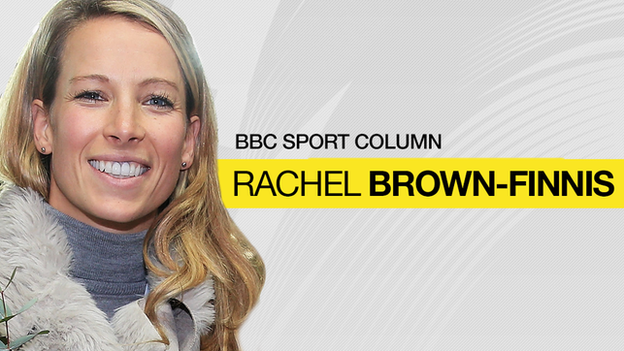
There has been a lot of negative coverage of refereeing recently so maybe it is time to give officials some credit for getting things right.
The general consensus is that refereeing standards are getting worse and people are quick to point out their mistakes but, when you have a week like this one where there are no obvious errors, nobody says how well they have done.
The FA Cup third round is admittedly a little different to a Premier League weekend because some of the ties are less even and so less competitive.
But out of 32 ties, the biggest talking points concerning refereeing decisions were the red card given to Chelsea's John Terry and the penalty awarded to Manchester City in their 5-0 win over West Ham.
Terry appealed against his dismissal for a professional foul in Chelsea's 4-1 win over Peterborough, but I have no idea why. It was no surprise when the decision was upheld.
City's penalty, when Pablo Zabaleta went down under a challenge from Angelo Ogbonna, was less clear-cut but, again, I can see why the referee gave it.
Help our referees - crack down on crowding
This weekend was not the first time I have watched games while getting a referee's perspective - through my TV work, I have watched a lot of Premier League matches recently sitting next to former top-flight official Howard Webb.
What I have learned from him is how quickly referees have to make a decision, and how certain things affect it.
One of them is players crowding around the official. Webb felt it made a big difference earlier in the season when the rule was being enforced that you cannot surround the referee to protest against a decision, but he feels it has not been policed as much in recent weeks and it has crept back in.
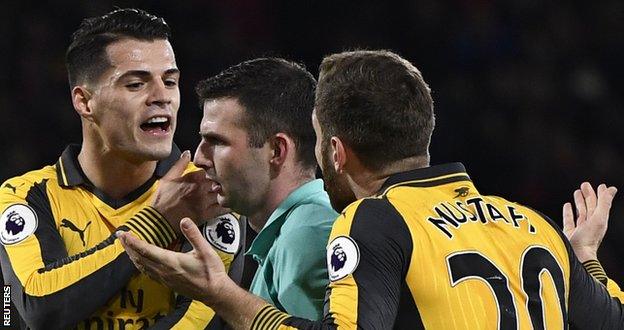
Arsenal's Granit Xhaka and Shkodran Mustafi remonstrate with referee Michael Oliver as he awards a penalty to Bournemouth in the Gunners' 3-3 draw on 3 January
He was not sure why they have stopped warning players not to do it, because it makes it harder for referees when they have got a big call to make but they have got all kinds of people chatting away in their ear.
Why video officials are the future
Enforcing that crowding ruling again would be a relatively simple fix but there are other more revolutionary ways to help referees get things right more often.
In-game video refereeing is probably the most talked about idea, and has already been trialled by governing body Fifa.
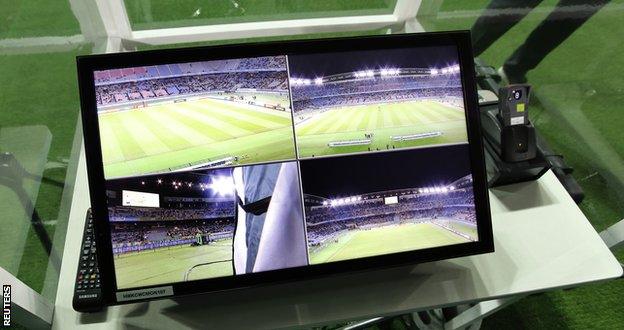
Fifa tried out a pitchside video refereeing system during the Fifa Club World Cup in Japan in December
For me, it is 100% the way forward and should be brought into the Premier League as soon as possible - it is just a matter of deciding how to implement it.
You could have a video official who looks at incidents automatically, have a system where the referee requests which incidents are reviewed, or let managers get involved and give them one or two 'challenges' each half to use when they want to appeal against a decision or flag up something they think has been missed.
A combination of all three might be the answer.
I would hope that the video official and the referee could work together as a team and be in constant contact anyway, especially for big game-changing decisions - there should be no need for managers to request a review of those.
Retaining the flow of the game
The technology is already there to use video refereeing, and I think we are being a bit stubborn not using it.
I know from my TV work that for all Premier League games, the number of cameras at grounds mean video analysts can offer replays of an incident from several different angles within a few seconds.
At the moment, that footage is seen pitch-side in the press box as well as by us in the TV studio, but not by the referee or any of his team of officials.
If you could offer that same facility to them then you are going to get more correct decisions.
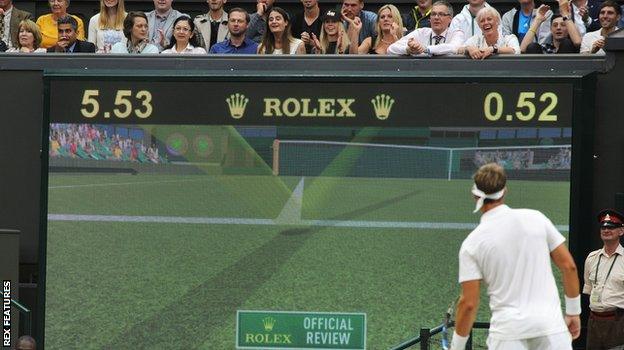
The Hawk-Eye system has been used to review line calls at Wimbledon since 2007
There are obviously plenty of incidents where replays are inconclusive, but at least this would give officials the chance to take a second look before making their minds up.
Part of the criteria for deciding which system to implement should be the potential time it could add to the game and I think everyone would agree that part of it has to be right.
I don't see it being a problem in football. Rugby League has embraced video refereeing, and it can be annoying when every try is reviewed, but overall it does not affect the flow of the game, or dramatically extend every game.
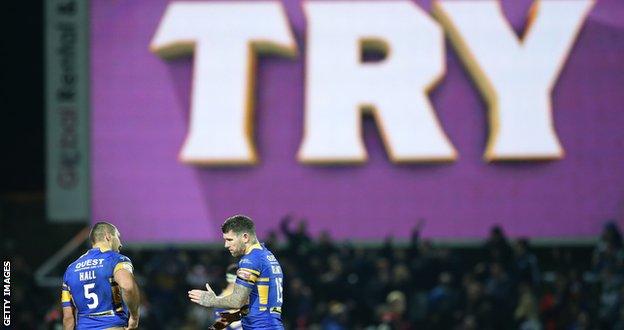
Rugby League has used video technology in Super League matches since 1996, when it was initially introduced only for televised games
If we are talking about five minutes being added on at the end of each match then that would work fine in the Premier League - the 30 extra minutes or so you get added on in the NFL would not.
Going by what has happened in other sports like cricket and tennis, I don't think it would take long for everyone - referees, players, managers and fans - to get used to it.
Crucially, I cannot think of a sport that has started using it and then stopped.
Better communication would help too
How Hawk-Eye technology will work
We have already seen the benefits of football trusting in goal-line technology, for getting things right and also avoiding any argument about the decision afterwards - most of the time.
The only time I have ever seen a debate about it was during Manchester City's win over Burnley at the start of January, when there was a decision to be made over the order of events - City keeper Claudio Bravo was fouled in a goalmouth scramble, but the goal had already been given.
I cannot imagine referee Lee Mason had been in that situation before, where his watch buzzed to tell him the ball had crossed the line but he did not automatically give a goal because he had to think about what had gone on before it.
Mason got that bit spot-on, but it did not appear he communicated his thought process to the managers via the fourth official.
That is the only criticism I would make of that situation because it led to City boss Pep Guardiola boiling over during his interview to the BBC after the game, or at least that is what I assumed he was unhappy about.
Watch Guardiola's awkward post-match interview
It annoyed me because that confusion could have been cleared up in five seconds if anyone had explained to Guardiola what had happened. Do that, and everyone looks good.
Let managers talk to referees if they want to
The ideal time to get that kind of information across is through the fourth official during the game but, failing that, the communication should definitely happen afterwards.
Before Christmas, Arsenal boss Arsene Wenger complained that referees were "protected like lions in a zoo" because it is not possible to question their decisions without getting into trouble.
Offside decisions difficult to accept - Wenger
Wenger had just seen his side beaten by two Manchester City goals that he felt were offside and, just as with Guardiola against Burnley, it would have been easy to explain those decisions to him before he faced the media.
The best way to do that would be to have a debrief after every game where the manager can get clarity on anything he wants from the referee.
I don't agree that the referees should face the media, however. Let the managers talk to them and then they can decide whether to talk about it in the press conference afterwards.
If they do pass on that information, then at least the decision-making process is clear even if the decision itself is wrong. From my own experience as a player, that would make things easier for everyone to accept.
Rachel Brown-Finnis was speaking to BBC Sport's Chris Bevan.
- Published11 January 2017
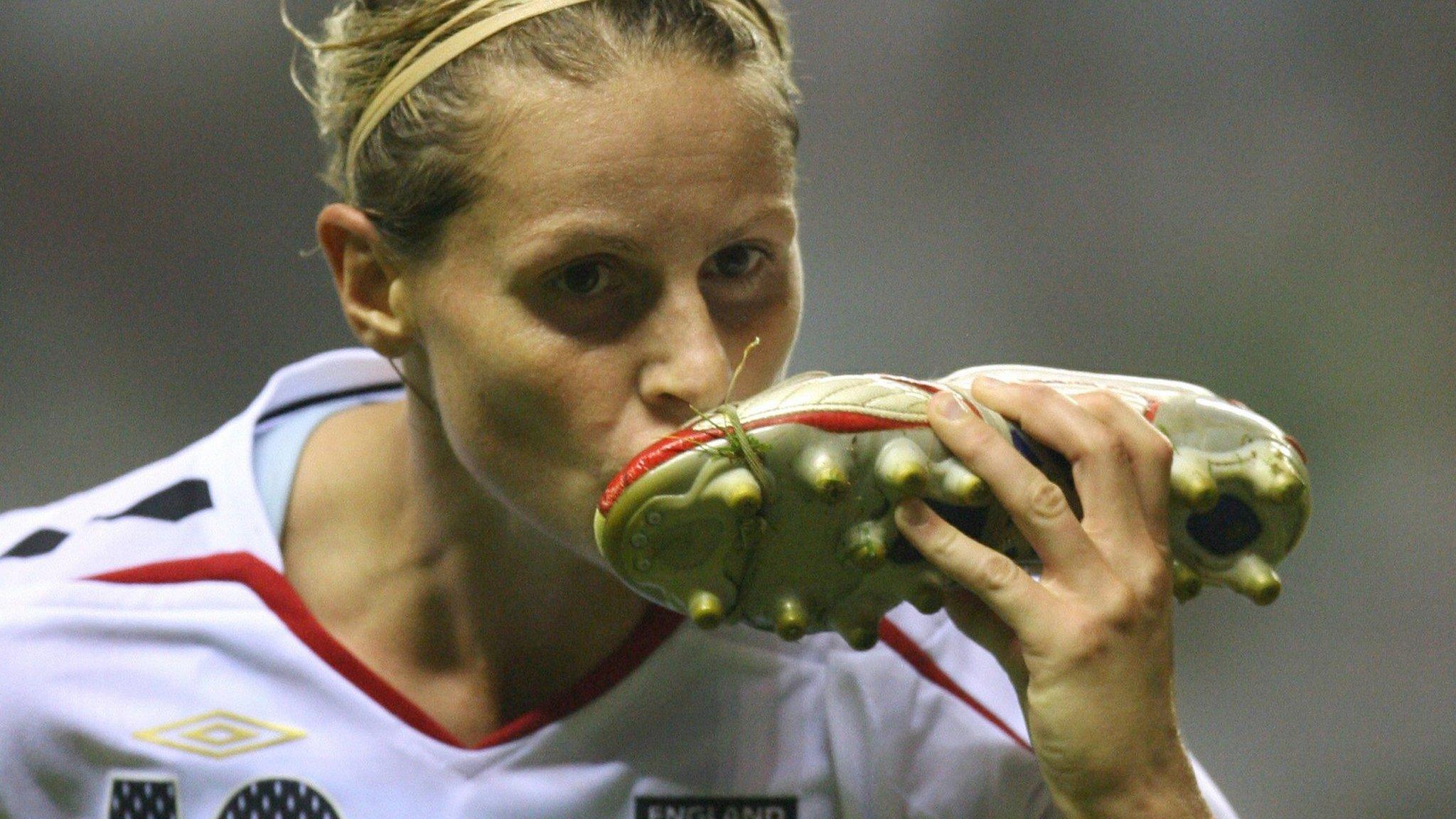
- Published8 January 2017
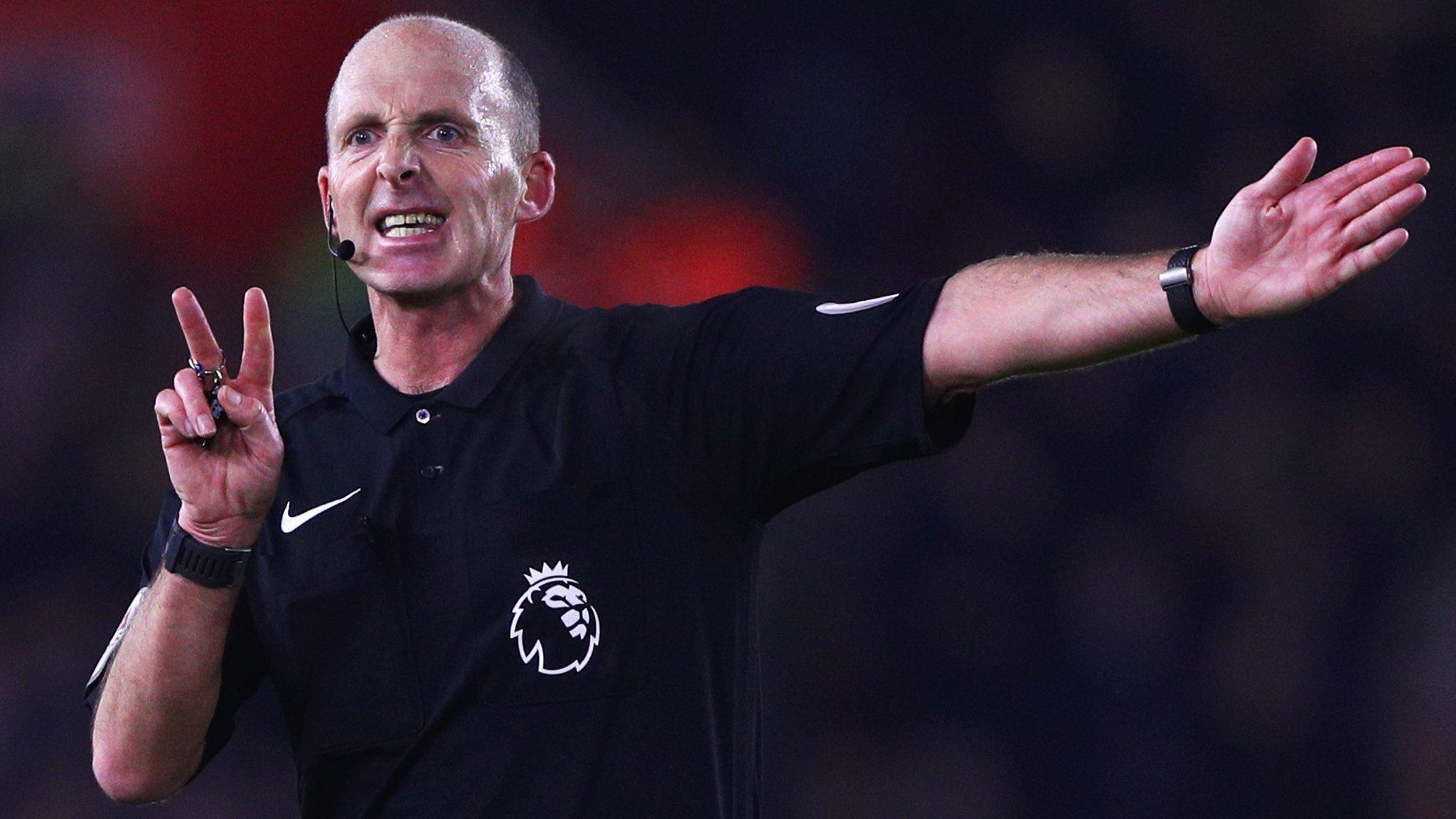
- Published14 January 2018
- Published7 June 2019
